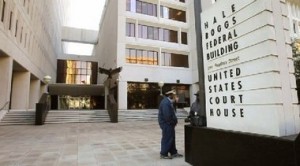accountingtoday.com
Los Angeles (June 21, 2011)
A Santa Monica man was arrested Friday morning on charges that he committed tax fraud and attempted to interfere with the administration of the Internal Revenue laws.
Howard Hal Berger, 51, appeared Monday morning before U.S. District Court Judge John F. Walter. Berger previously pleaded not guilty to the charges specified in an indictment returned by a federal grand jury late last week.
According to the indictment, Berger filed a partnership income tax return for Lab Holdings LLC for the 2006 tax year which falsely reported a contribution of $1 million, substantially reducing his income tax liability.
In addition, Berger filed an individual income tax return for the 2006 tax year which falsely reported gifts to charity of $991,700 on the attached schedule of itemized deductions.
While under audit by the Internal Revenue Service, Berger submitted a false charitable donation letter in an attempt to substantiate the deduction for gifts to charity taken on the 2006 individual income tax return.
If convicted of all charges specified in the indictment, Berger faces up to nine years in prison and fines totaling $750,000. Berger is currently free on bond pending trial. A trial is scheduled for Aug. 9, 2011, before Judge Walter.
The investigation of Berger was conducted by IRS-Criminal Investigation in conjunction with the U.S. Attorney’s Office in Los Angeles.


Follow Us!